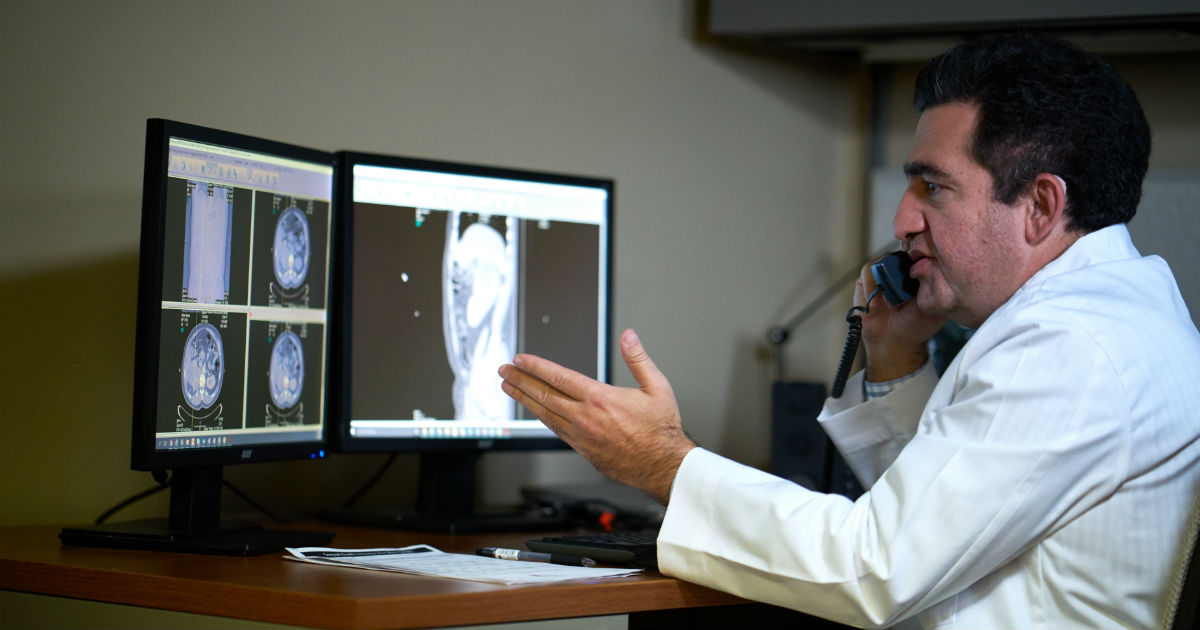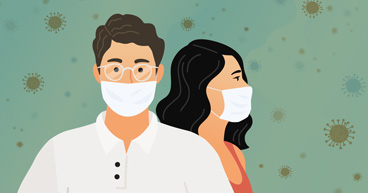
A cancer diagnosis often comes with many questions. How advanced is my cancer? What are my treatment options? Where should I get treated? For cancer patients and family members, these and many other questions are difficult in normal circumstances.
Now, with the COVID-19 pandemic creating travel concerns and straining the nation’s hospitals, some decisions may be even more complicated. Can my treatment be delayed? What happens if it is? Should I travel for my treatment? “If you have an upcoming appointment that requires you to travel, talk to your care team directly,” says Jeffrey Metts, MD, MPH, Chief of Medicine at our Atlanta hospital. “Some appointments may be medically urgent, while others may be safely rescheduled for another time.”
Hospitals around the country are canceling or postponing treatments and procedures in order to focus on the COVID-19 pandemic and help prevent exposing cancer patients and others to potential infection. But how do you and your care team determine if your treatment can be delayed and whether you should travel to get treatment? “At a minimum, if it is believed by a clinician that delaying cancer treatment will negatively impact the survival of the patient, it is considered necessary,” says Maurie Markman, MD, President of Medicine & Science for Cancer Treatment Centers of America® (CTCA).
Since no two cancers—or cancer patients—are alike, the circumstances that may influence a treatment decision may vary widely. The result of postponing treatment for a relatively healthy 55-year-old man with early-stage prostate cancer may be very different than for a 70-year-old woman with COPD and stage 4 lung cancer or a 62-year-old man with non-Hodgkin lymphoma, a cancer that directly affects the immune system. To help determine whether you may be able to postpone treatment, doctors consider many factors, including:
- Your age and overall health
- Your cancer type and stage
- Whether you are experiencing symptoms or side effects
- The type of treatment that was scheduled
- Where you are in your treatment regimen
“We have to look at each patient on a case-by-case scenario,” Dr. Metts says. “For some patients, because we know that cancer doesn't wait for COVID-19, their treatment is essential. But for other patients, some of their treatments can actually wait. What we're recommending is that each patient reach out to his or her cancer team, so that they can make that decision together.”
If your treatment requires you to travel for treatment, it is recommended you travel by car, if possible. If you must fly for your appointment, take these steps to protect yourself:
- Wash your hands and face frequently with soap and water for at least 20 seconds.
- Try to avoid crowds at the airport.
- Don’t share food.
- Choose a window seat on the plane, and don’t get up during the flight.
- Don’t touch your eyes, nose or mouth.
- Bring antibacterial wipes and wipe down your seating area on the plane and at the airport.
“It's important that cancer patients, now more than ever, really practice safe, healthy hygiene habits,” Dr. Metts says.
If you are in active treatment and are concerned about how the COVID-19 situation may impact your care, please contact your care team.
Learn more about whether hand sanitizers and surgical masks can protect you from COVID-19.



